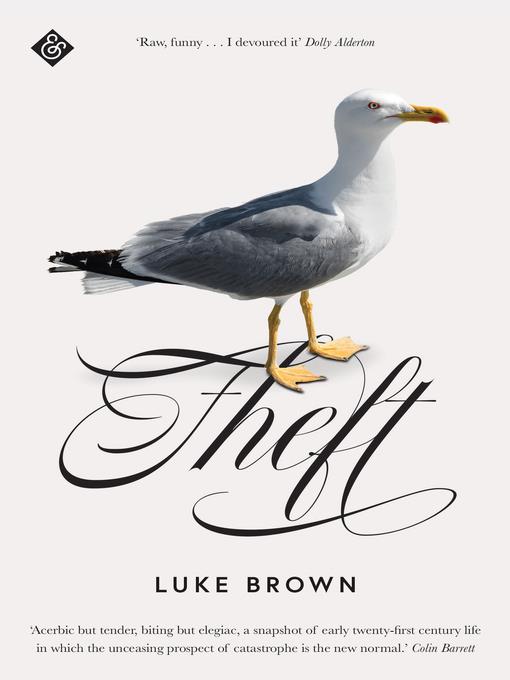
Theft
- اطلاعات
- نقد و بررسی
- دیدگاه کاربران
نقد و بررسی

February 1, 2020
An emotionally complex story of grief, desire, and Brexit. When this comedy of manners opens, it's early 2016. Narrator Paul lives in London, where he shares an apartment with several friends. He works part-time in a bookstore and has a semisteady gig writing two columns for a pop-culture magazine called White Jesus: one on books and one where he reviews haircuts. It's through this work that he interviews a somewhat reclusive novelist named Emily Nardini, with whom he quickly becomes smitten. Complicating things is the presence of Emily's public-intellectual boyfriend, Andrew Lancaster, and the likelihood that Paul's feelings for Emily are unrequited. That's not the only area in which Paul's life is complicated: There's also the matter of his sister, Amy, who has been absent from his life since they had an argument following the death of their mother. Paul and Amy hail from a working-class community on the northwest coast of England, and the tension between urban and rural areas that came to the foreground in the Brexit vote is a very real presence in his life. Paul's occasionally acerbic narration makes for a memorable narrative voice, and Brown (My Biggest Lie, 2014) pulls off the tricky feat of creating a protagonist who teeters on the border of misanthropic and self-loathing without making him unbearable. Along the way, Brown ponders questions of class and art, creating a memorable supporting cast whose beliefs often come into conflict, leading to numerous barbed exchanges. Looming over much of the novel are Paul and Amy's efforts to sell their late mother's house, which connects them to a place about which they feel conflicted emotions. With bleak humor and sharp details, Brown memorably connects the personal and the political.
COPYRIGHT(2020) Kirkus Reviews, ALL RIGHTS RESERVED.

April 6, 2020
Brown’s clever U.S. debut examines the challenges of contemporary life in London as experienced by an underachieving 30-something journalist. Paul Wright works at White Jesus, a magazine that, he admits, has a “toxic level of irony.” His editors pay him twice as much for cheeky reviews of London haircuts than for his book column, which is in danger of being axed. The book column leads Paul to Emily Nardini, a beautiful author with whom Paul is soon smitten, despite the fact that she lives with a famous historian. Aside from traversing a shaky career, Paul faces the looming loss of his dirt-cheap flat, where Jonathan, the White Jesus advertising director and Paul’s friend from journalism school, is couch surfing. The first half of Brown’s narrative takes the form of conversations between Paul and the other characters, while the second part adds Paul’s side of conversations with his therapist to the mix. Everything from gender and class inequality to Brexit, art, and life goals are discussed with quite a bit of drinking and a fair amount of drugs, with Paul emerging just short of hapless. This tragicomedy successfully captures the feeling of what it’s like to yearn for a stable home, career, and love today.




دیدگاه کاربران